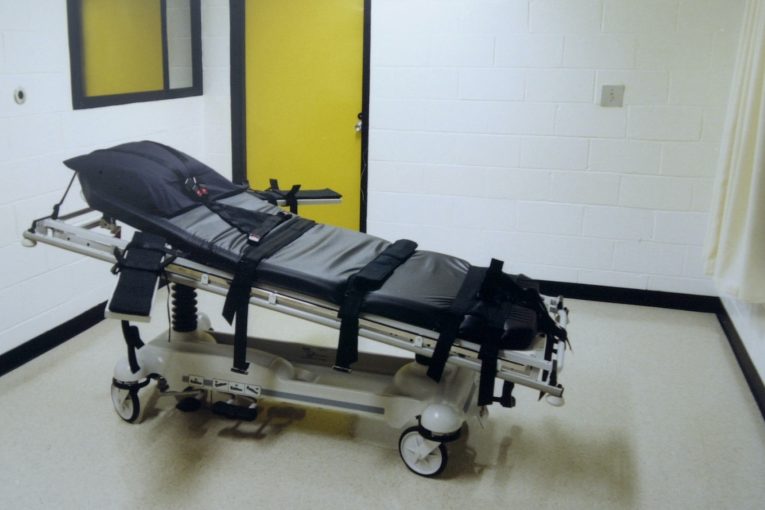

By Charlie Simmons
WASHINGTON, DC – Law professor Stephen Bright published an op-ed in the Washington Post this month entitled, “Struck from a jury for being Black? It still happens all too often.”
This piece highlighted the continued exclusion of Black people from juries in defiance of Batson v. Kentucky (1985), a Supreme Court ruling which prohibited this particular type of racial discrimination.
Bright used the case of Warren King, a death sentenced prisoner in Georgia who is petitioning the Supreme Court on the grounds that discriminatory jury strikes denied him the right to a fair trial, to illustrate this point.
“The right to a fair trial before an impartial jury of one’s peers is one of the criminal legal system’s most basic principles. But for many Black people, the promise is illusory,” writes Bright. He explains Black people are “completely or substantially underrepresented on juries, especially in death penalty cases.”
According to the American Civil Liberties Union (ACLU), “Juries in capital cases must be death-qualified, meaning that they can be neither categorically opposed nor categorically in favor of the imposition of the death penalty.” The ACLU cites the “problematic and discriminatory” practice of black people opposed to the death penalty being routinely “dismissed.”
“As a result, all-White juries are still common in criminal trials, even in communities with substantial minority populations,” states Bright.
The ACLU emphasizes that in “Batson v. Kennedy, the Supreme Court made clear that prosecutors are prohibited from excluding jurors based on race and when challenged, must provide race-neutral reasons for using peremptory strikes on Black people.”
In a separate article, the ACLU, said Bright, demonstrated this principle was routinely violated, citing a study conducted by law professors Catherine M. Grosso and Barbara O’Brien, which “involved more than 1,400 prospective jurors.
“The researchers found statistically significant evidence of racial disparities in death qualification, with Black potential jurors removed ‘at 2.16 times the rate of their white counterparts.’”
This trend also applied to peremptory strikes.
According to the ACLU, “the study also found statistically significant evidence that prosecutors exercised their peremptory strikes in a racially discriminatory manner. According to the researchers, prosecutors exercised their discretionary strikes to remove 51 percent of eligible Black jurors compared to 25 percent of eligible white jurors.”
This bias is amplified for black women. Grosso and O’Brien also found “Black women… were removed under death qualification at 2.75 times the rate of other potential jurors.”
Bright explained how prosecutors “routinely get away with striking based on race because courts fail to scrutinize their often-flimsy excuses, which include such dubious reasons as alleged low intelligence, lack of eye contact, living in a high-crime neighborhood or showing boredom or inattentiveness.”
According to the ACLU, King recently “filed a petition for a writ of certiorari in the United States Supreme Court, asking the Court to review the Eleventh Circuit Court of Appeals’ ruling denying Mr. King relief. The petition states that ‘abundant evidence demonstrates that the prosecutor discriminated against Black and female jurors in selecting King’s jury,’ which violates the Equal Protection Clause of the Fourteenth Amendment to the U.S. Constitution.”
The ACLU describes how the prosecutor in King’s case, John B. Johnson III, “struck 87.5 percent of all Black individuals in Mr. King’s jury pool, while striking just 8.8 percent of white individuals in the jury pool, all of whom were women.”
The trial judge found that one of Mr. Johnson’s strikes, of a Black woman, was racially motivated and “mainly because she was a Black female,” and the trial judge placed her back on the jury.
Furthermore, the ACLU, said Bright, stated the Georgia Supreme Court denied Mr. King relief, “affirming the trial court’s findings that Mr. Johnson’s strikes did not constitute a Batson violation, but were rather ‘mistakes.’”
Bright wrote the ACLU describes how Mr. Johnson’s actions mirror those of previous Georgia prosecutors, who have a “long history of racial discrimination against Black people in the jury selection process.”
The ACLU, noted Bright, cites a study of eight southern states conducted by the Equal Justice Initiative which “documented how some district attorney’s offices expressly train their prosecutors how to successfully exclude people of color from serving on juries and what reasoning to offer to avoid sanction.”
Bright classifies King’s case as “egregious racial discrimination,” and urged the Supreme Court to take up the case, proclaiming the court should “make clear once again that such discrimination has no place in the legal system.” 